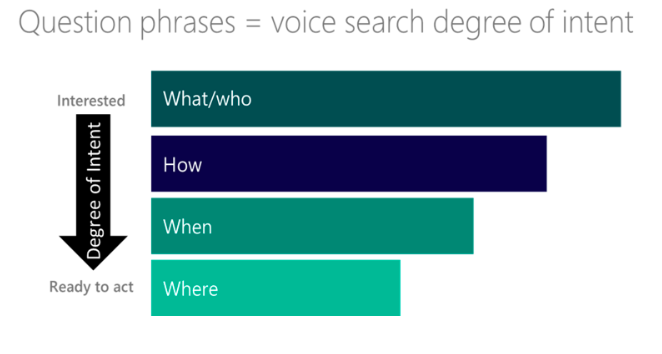‘Hey, Google’ should be entered into the OED. What’s the definition you ask?
A phrase used to settle arguments, save your pasta recipe and find out if you’re ill enough to miss work.
Voice activated search is on the lips of everyone from users to SEO experts with the new medium shaking up how we use the internet. Digital assistants such as Siri, Google and Alexa have become widely featured in the past few years. Major publications write about them while major car manufacturers have started installing them into their latest models. Digital assistants are becoming ubiquitous with children not knowing of a world where voice search didn’t exist.
With this in mind, how do you optimise your site to deal with the rise in voice-activated search? What are the markers of a good voice search? What does it mean for marketing? How do you write content that satisfies voice and traditional users? While it seems daunting, there are a few easy tasks to get your website ready for the voice wave.
Schema Mark Up
One of the newest and most exciting developments has been Google’s addition of schema markup for voice search. Developed by Google and Schema.org, Speakable enables Google’s Assistant to convert text into speech. The Speakable structured data indicates content that it feels is most suitable to read aloud. However, while this is a great development it is still in its infancy so writing content that fits natural language is a great way to help out this burgeoning system and get your site at the forefront of voice search.
Question Phrases
This brings us to question phrases. Search terms currently are optimised for typed search returns. Human beings naturally angle towards saving time and effort resulting in searches devoid of prepositions, question words and other diction. Voice, by comparison, has to look for context so adding question words and other natural language is a must. Here’s an example of how content style may change;
A search for your local Black Friday sales may go something like “Black Friday, Nottingham”. However, with voice search, the phrase becomes more nuanced with inflexion, context and sentence structure altering your results. ‘Where are Black Friday sales in Nottingham?’, ‘When is Black Friday in Nottingham?’, ‘What can I buy on Black Friday in Nottingham?’ All of these questions mean there is more scope for search as requests become more nuanced. Answer the Public is a great place to get started; it takes search terms and breaks them down into what questions people would ask about them.
Once you’ve found how users might phrase a question you’ll need to decide whether your user is just looking for information or trying to complete a conversion. The degree of intent moves from interest to action with ‘what/who’ at the top of the funnel and ‘where’ at the bottom. Once you’ve got your user’s intent it’s time to incorporate the question phrases into your copy. But how do we do that naturally?
Short Answers in Copy
Short answers in your copy are the easiest way to introduce voice search to your content. This doesn’t mean rewriting your whole site. Instead, it means ensuring your H2s and answers are in easy enough chunks to digest. For example, if you have an article on voice search, adding an introductory H2 with the title ‘What is Voice Search’ and following it up with a short answer of a few lines is a great way to introduce your topic and create an instant highlight for any voice search.
HTTPS
On a structural level Neil Patel has done a lot of research and found that the majority of sites trusted for voice searches have HTTPS. Unsecured sites are less likely to rank for voice so be sure to maintain and update the security on your site.
Authority
Last, but not least, is authority. Like with all search; being the most knowledgeable is the best way to rank for search. Loads of content that is user focused with backing from SEO research is still the order of the day. While you’re unlikely to take the voice search returns off the likes of Forbes, Wikipedia and WebMD you can certainly focus on your niche. Get personal and create content that goes straight to the heart of what your user needs and you’ll find ranking highly for voice as well as physical searches.
These tips are worth considering with the sheer weight of supporting statistics alone. Stay ahead of the curve and ensure your brand is front and centre of every home with optimised sites that work as well on voice searches as they do on physical. At Fifteen we’re always looking for ways to give our clients that cutting edge. Contact us today to find out how we can optimise your brand.







